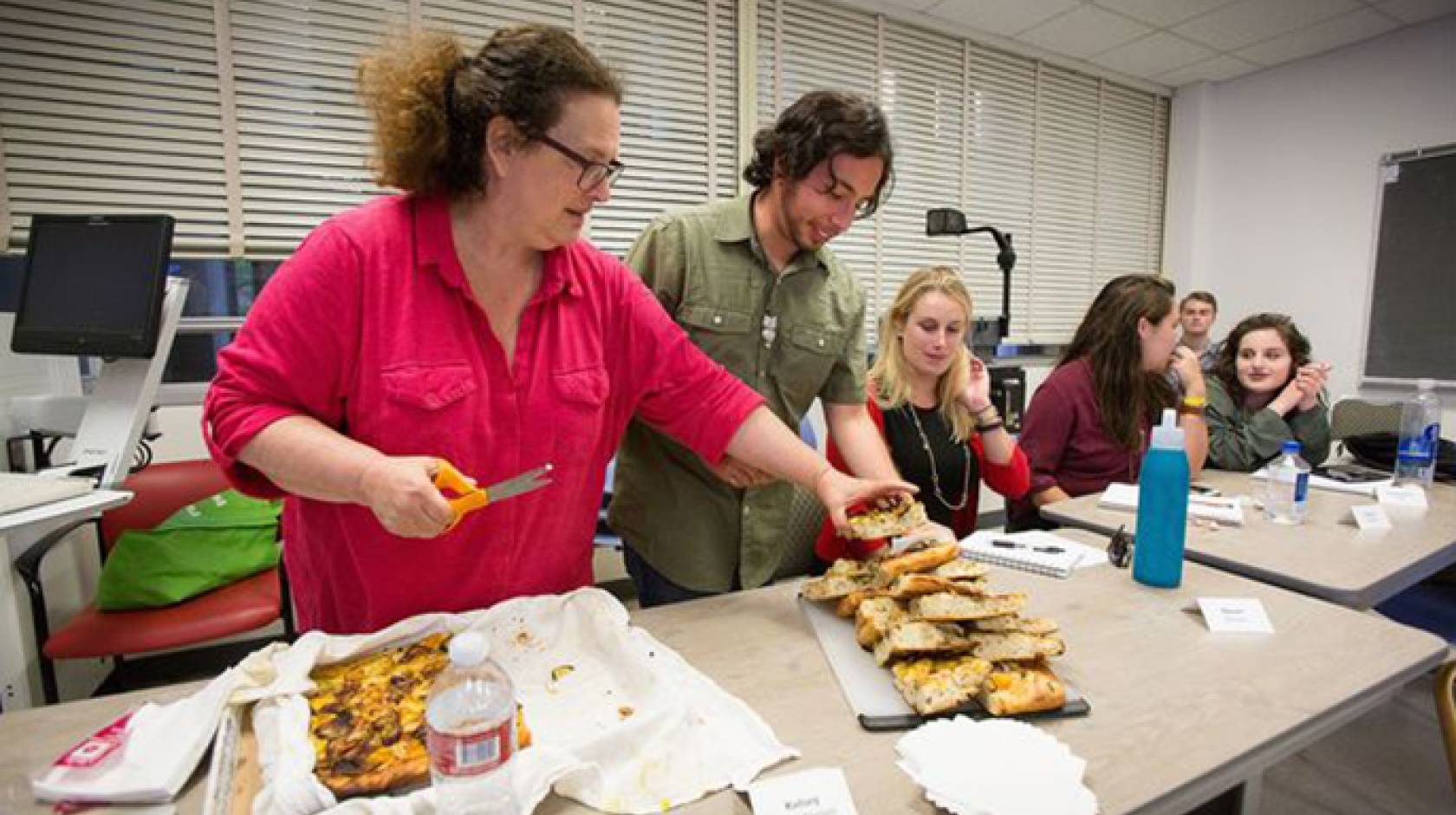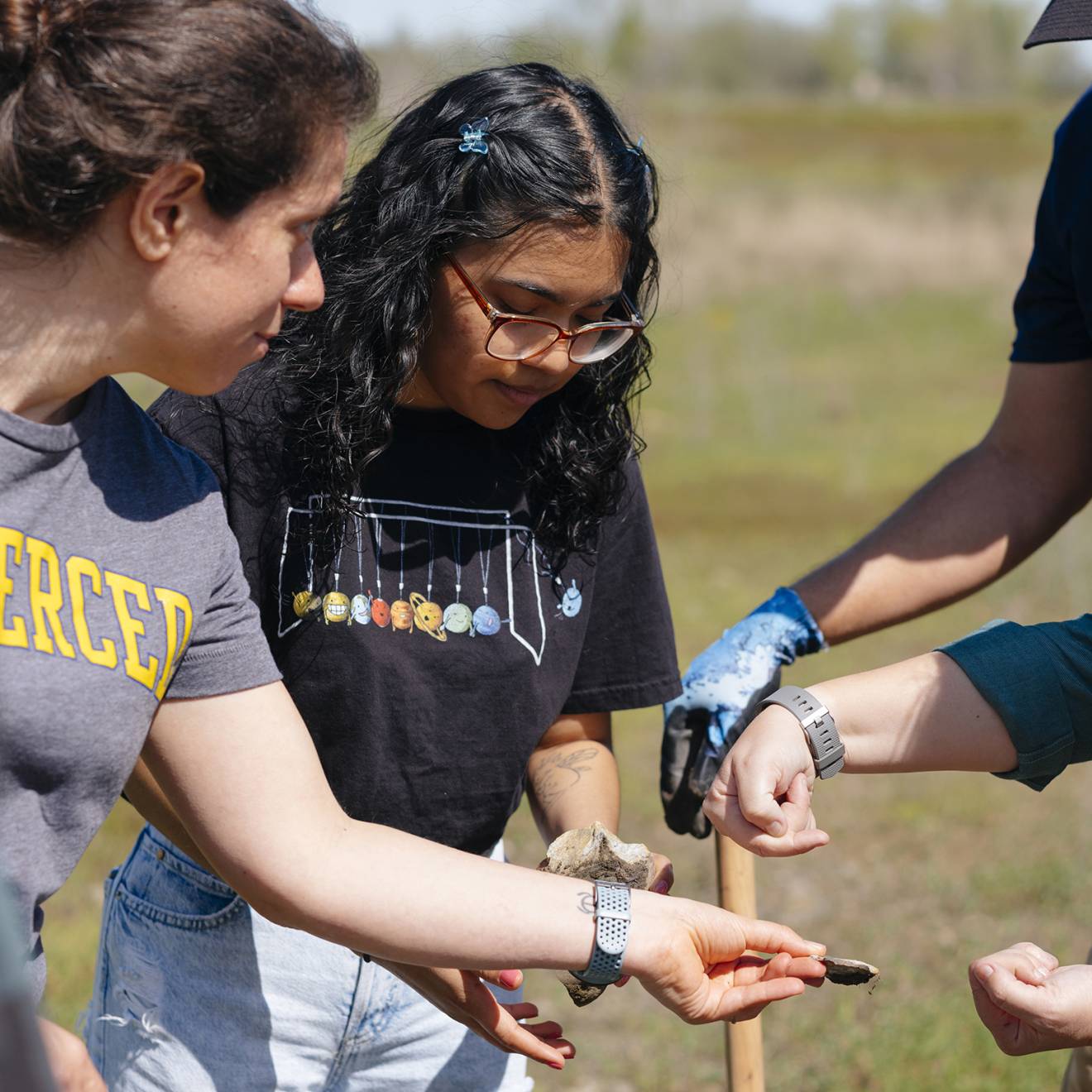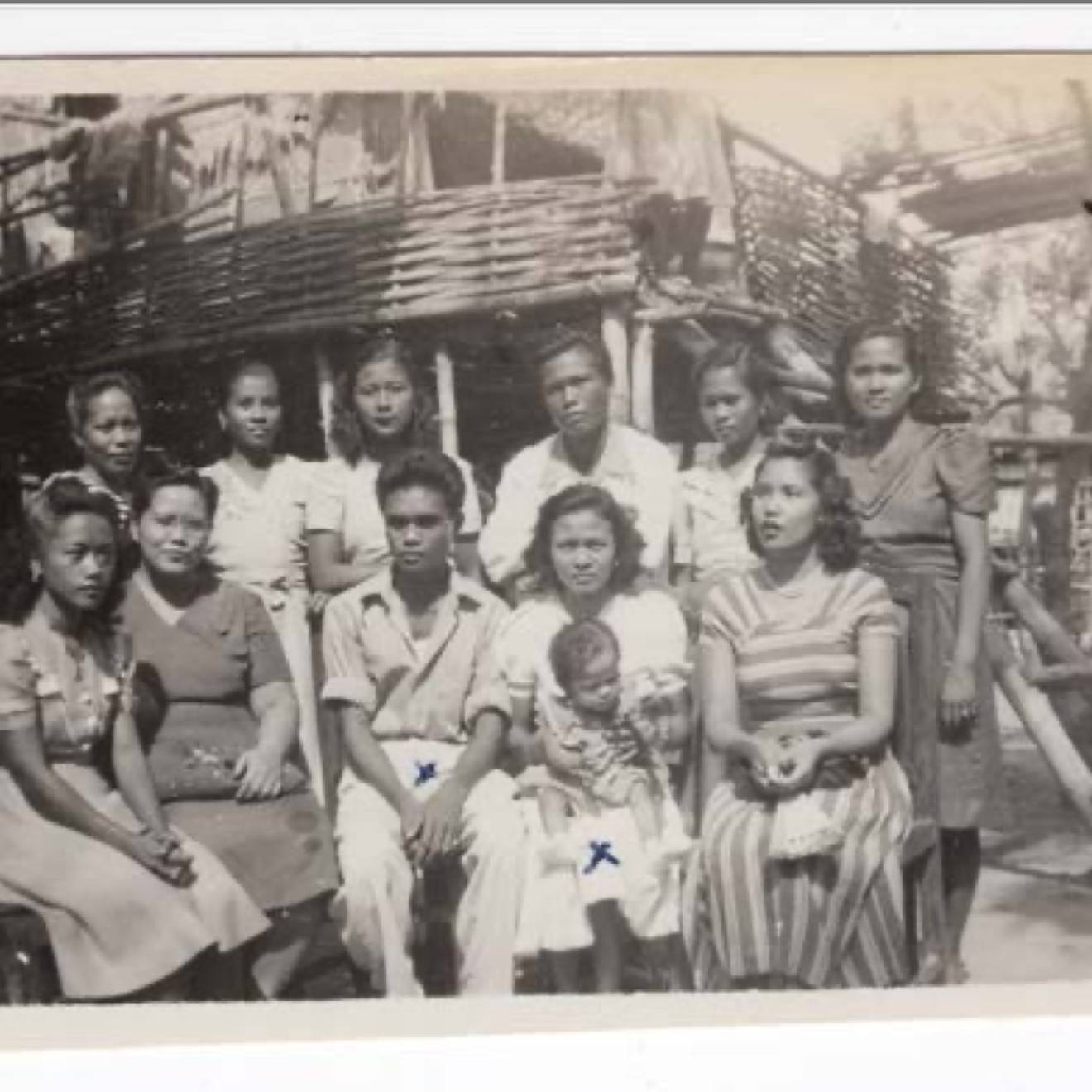Jessica Wolf, UCLA

Popular KCRW “Good Food” host, renowned foodie and longtime L.A. restaurateur Evan Kleiman is treating UCLA students to a thoughtful exploration into issues of food and sustainability in her summer course, “We are Stardust: The Moral Ecology of Food.”
The title of class is not a metaphor, the UCLA alum explained. She hopes to encourage her students to look at food literally from a broader viewpoint of humanity’s relationship to the Earth.
“Think back to the time when we were first able to see pictures of our planet from space,” she said. “When you see it from that perspective, in a poignant and shocking way, you realize we are on our own; all of our food and water and ability to survive as a species happens within that one sphere. And a lot of what is going on with the Earth has to do with us.”
Kleiman wants students to take a deeper, more empathetic look at food consumption, both as individuals and as contributors to and consumers in the whole food cycle. Students will pick a specific topic about food production, the food industry or ecology and write a philosophical, reflective paper at the end of the six-week course on whether what they have learned has inspired them to make changes or not.
Wendy Slusser, vice provost of the UCLA Healthy Campus Initiative, said Kleiman is a great asset to the campus’s expanding food curriculum and dubbed her “the fairy godmother of the L.A. food scene.”
While Kleiman often teaches and lectures about food around the city and across the country, she is leading her first university-level course. She will draw on her vast experience and education as well as bring in a wide variety of experts with many perceptive perspectives on food production and sustainability.
For the first session on a recent Monday night, she invited in brothers and fellow UCLA alumni Mark and Jonathan Gold as guest speakers.
Mark Gold is currently UCLA’s associate vice chancellor for environment and sustainability and head of UCLA’s Sustainable LA Grand Challenge. He is a longtime environmental activist and former head of Heal the Bay. His brother, Jonathan Gold, is a nationally known Los Angeles Times food critic, the first such to win a Pulitzer Prize. His egalitarian embrace of the cuisines of many cultures has changed the way food is being reviewed across the nation and has shone a bright light on small, simple restaurants that are often off the beaten path.
During the first class, Mark set a serious tone for the course by tackling the issue of water — talking about management, safety and rights issues as well as conservation strategies and innovations that are being developed in our immediate community as it copes with long years of drought. Major and much-needed changes are underway as Los Angeles and other cities try to move to a more sustainable water supply, he said.
He also credited his brother, with whom he is often at philosophical odds, with being instrumental in a recent fight to end the cruel and extinction-inducing practice of harvesting shark fin, a delicacy for soups made in the Cantonese culinary tradition. Jonathan wrote a passionate, highly critical piece against the practice that helped turn the tide and led to the passage of a 2011 bill outlawing its use in California.
The subject of a recent documentary film, Jonathan is a frequent guest on Kleiman’s “Good Food” that airs Saturdays on KCRW. In her introduction of him to students, she praised Jonathan’s intellect and thoughtfulness, essential for the kind of discourse she hopes to instigate in her course.
Kleiman prompted Jonathan to share his thoughts on how he grapples with the dichotomy of knowing about environmentally harmful, if not morally cruel, practices in the food industry and having a job that requires him to eat pretty much everything, regardless of how it was made or where it comes from.
“I’m the belly of Los Angeles,” Jonathan joked. He freely admitted that it is often a challenge to reconcile the kinds of flavor profiles that delight him and the public at large with the sustainability practices of the restaurants where he dines.
But often the chefs he’s respected the most, he said, are also incredibly concerned with the supply chain. Jonathan was the first to use the phrase “farm-to-table” when describing a certain restaurant’s penchant for revealing the farm or region where ingredients originated right on its menu.
During the class, Kleiman and her students also broke bread together, something they will do every time they meet. For the first class, they shared a ratatouille dish that Kleiman provided. She invited students to take the opportunity to also share food and recipes.
“I just think it’s important to have food at every class because we’re going to be talking about serious things,” she said. “But the joy of making food and sharing food is something that I think everyone can agree on.”
Kleiman knows that awakening knowledge around the complicated realities and morality of food-supply practices can create a sense of ambiguity, even insecurity, about one’s food choices. She said she hopes to help students process these concepts thoughtfully and with self-acceptance.
“We have all of this information, and the question becomes what do you do with all of it,” she said. “That’s the walk I want to take in this class.”

